Papel Picado: Fun Facts, Cultural Significance, and Day of the Dead
Papel picado is a form of traditional Mexican art that dates back to pre-Columbian times. Learn about how these intricately designed tissue paper banners are made, their cultural significance, and their use in celebrations such as Day of the Dead.
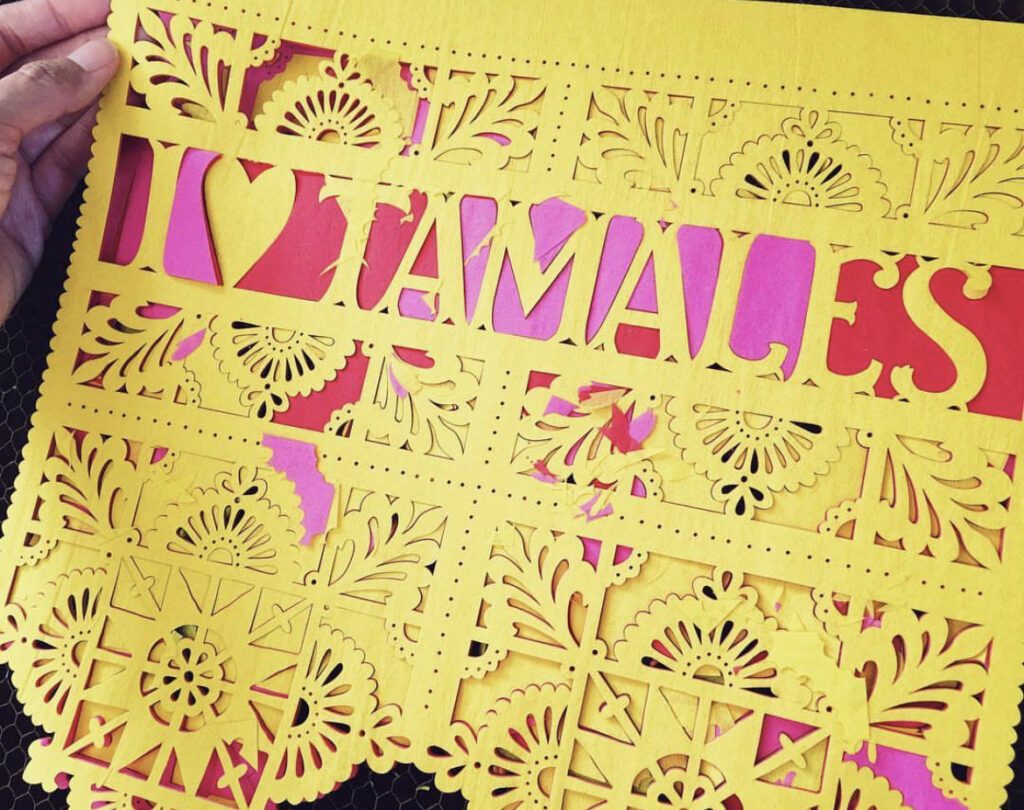
WHAT IS MEXICAN PAPEL PICADO?
Papel picado translates to “perferated paper,” which is essentially tissue paper banners with intricate designs. This traditional art consists of cutouts that are often strung together with twine to create colorful banners used to decorate for celebrations and festivals.
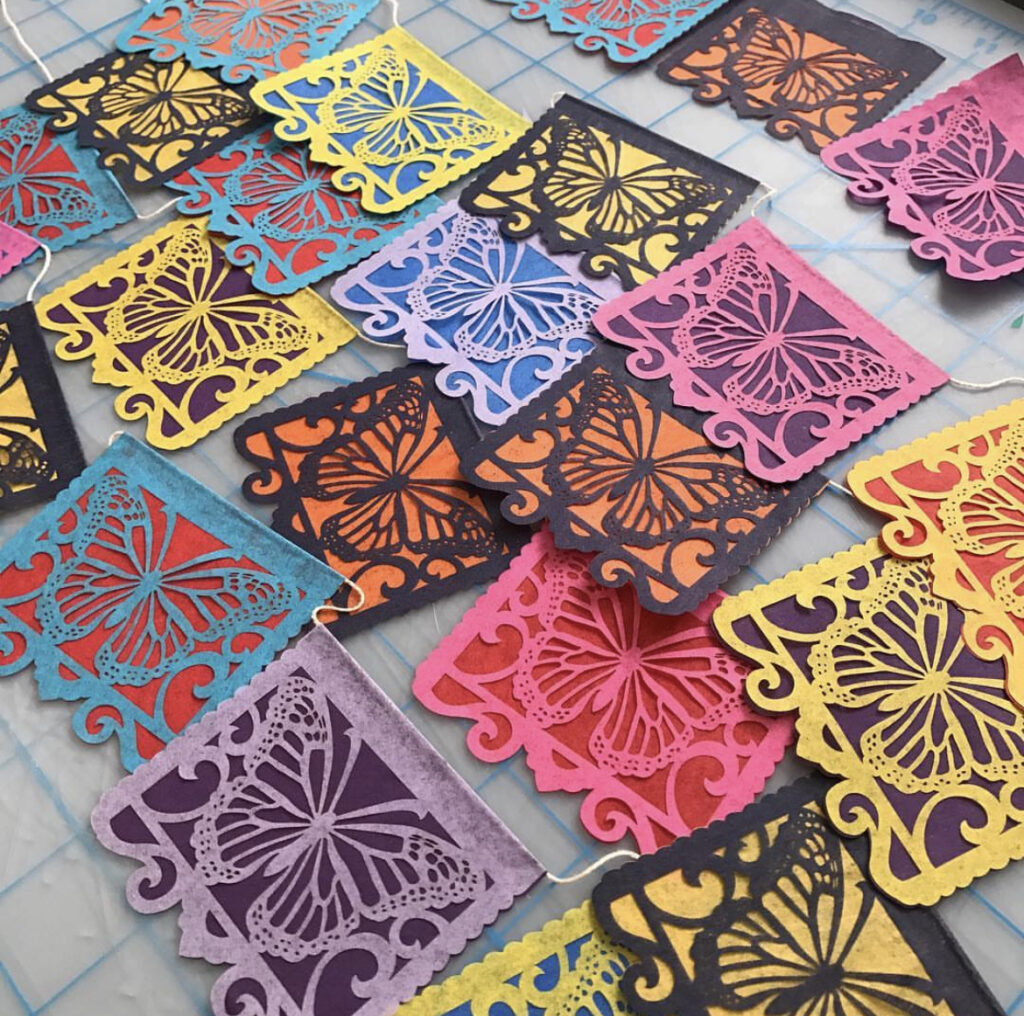
HOW IS PAPEL PICADO MADE?
Skilled craftsmen use awls, chisels and special cutting blades to render intricate designs into folded tissue paper. Working over a basic pattern, they hand-cut through as many as 50-100 sheets of tissue paper at a time. Once the design is complete, the tissue paper is carefully unfolded, revealing the cutouts.
- Lola’s Mercadito: Shop Day of the Dead Papel Picado + More
- Free Printable: Mini Papel Picado
- Papel Picado Template (for kids)
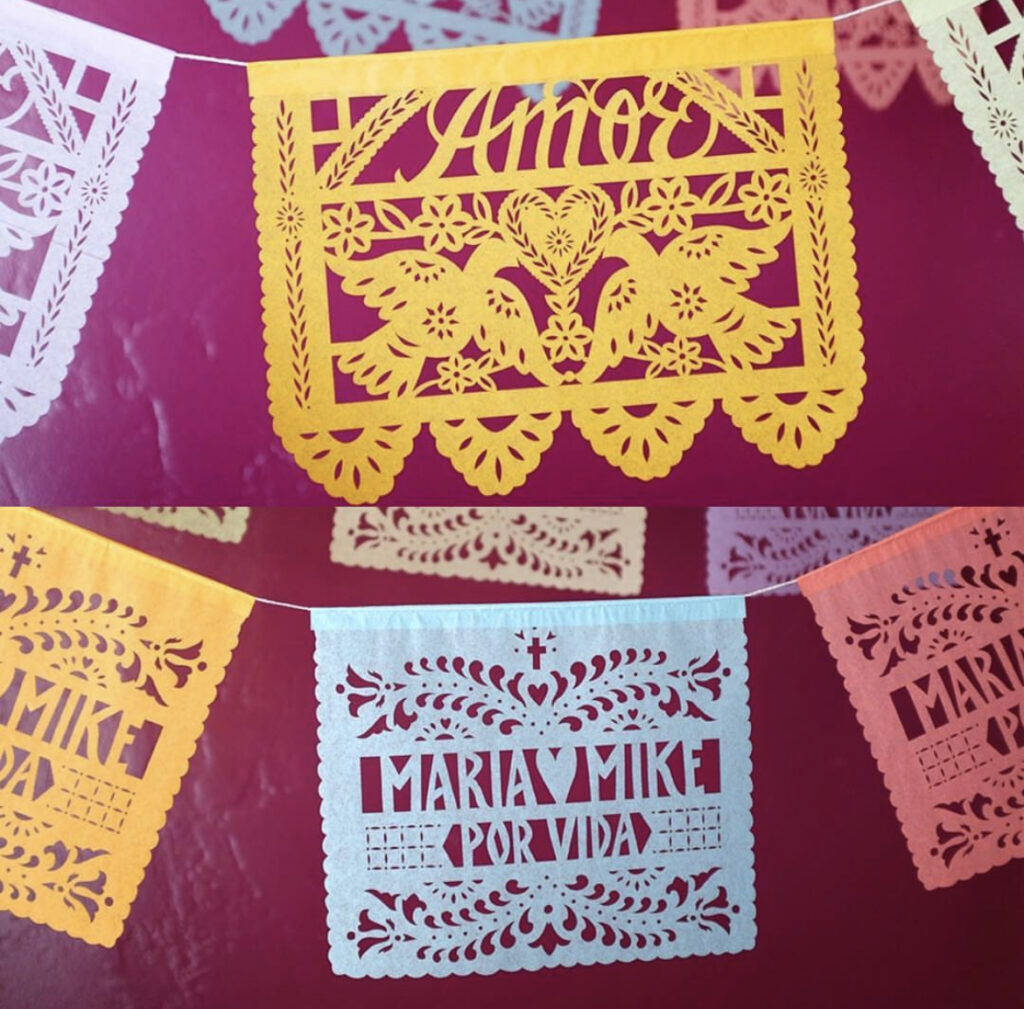
HISTORY OF PAPEL PICADO
Aztec Roots: Papel picado, a pre-columbian craft, dates back to the Aztecs who used to use the bark of mulberry and wild fig trees to make and decorate a rough paper called amatl. They used this tree bark “paper” to make flags and banners, and used it to adorn homes, streets, fields, and temples.
Spanish Influence: This practice evolved in the 18th century when the Spaniards introduced many new foreign products to the region of Mexico, including tissue paper. Tissue paper is referred to as papel china in Mexico, which translates to “paper from China.” The Spanish church would later commission artisans to make thousands of strings of papel picado with different designs for religious festivals where they hung in church plazas and lined the streets. That was when artisans began to apply this ancient art form to a new material, and thus, papel picado came to be the quintessential fiesta decoration we are familiar with today.
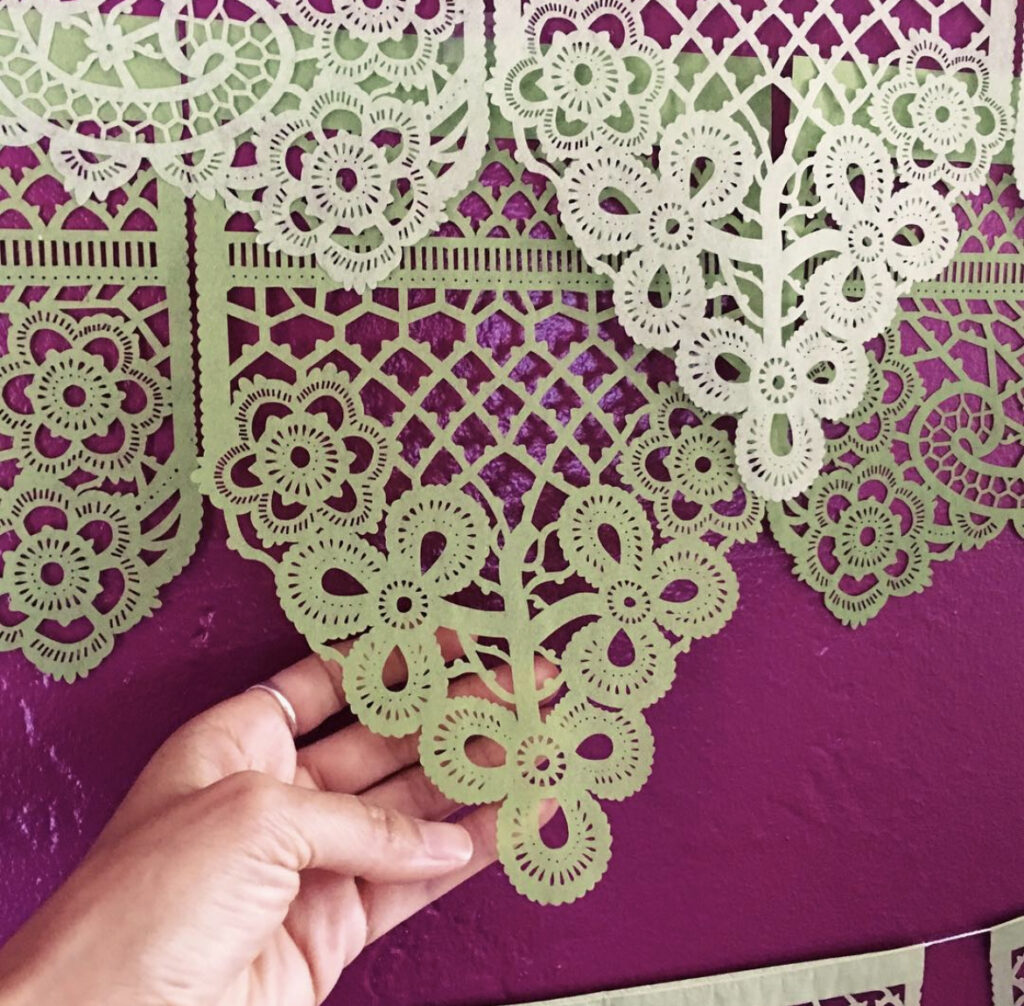
HOW IS PAPEL PICADO USED IN MEXICAN CULTURE?
Papel picado is used for a number of celebrations and events in Mexican culture, including:
- Día de Muertos (Day of the Dead)
- Weddings
- Birthdays
- Quinceñeras
- Mexican Independence Day
- Cinco de Mayo
- Christmas
- Easter
- Valentine’s Day
- Christenings and baptisms
- Religious and cultural festivals and much more!
These colorful decorations are often hung in homes, streets, and public places to add bright color and a festive vibe to the occasion. They’re even used to decorate party invitations!
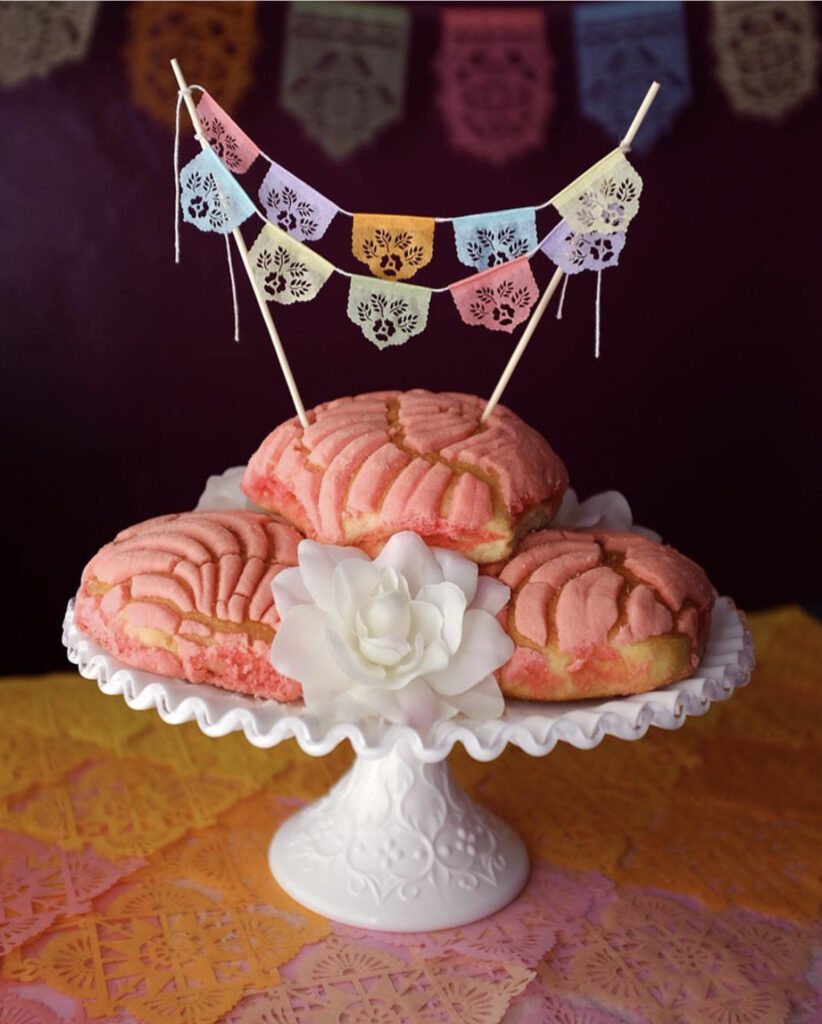
PAPEL PICADO FUN FACTS
In 2016, the largest papel picado banner ever made was created in Puebla, Mexico, the site of the historic battle of Cinco de Mayo. The banner was over a mile long and included over 45,000 individual papel picado flags, each one measuring 1.5 meters long and 1 meter wide.
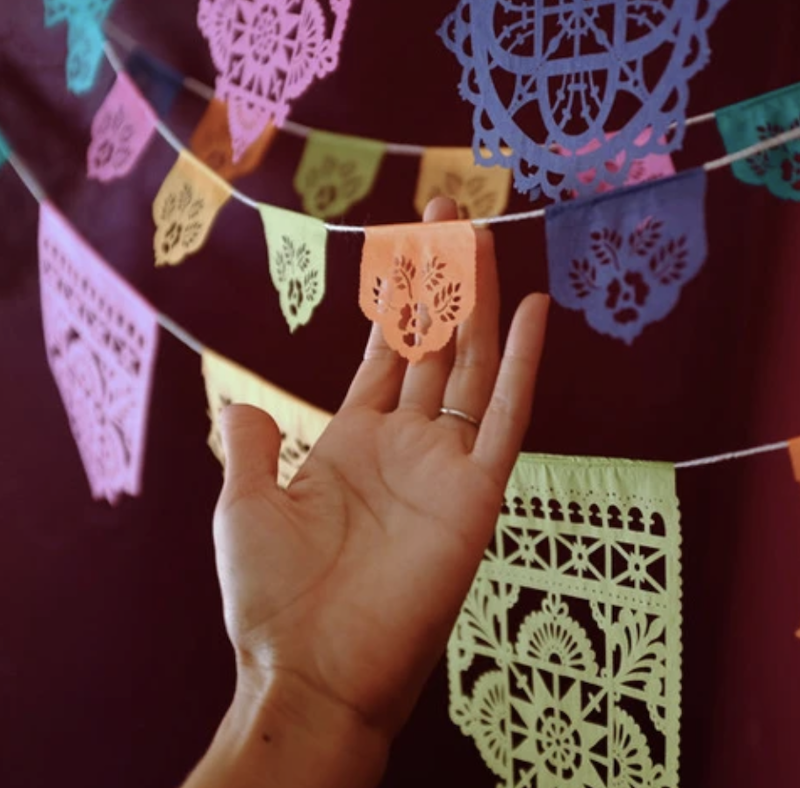
what are Popular papel picado designs?
Designs can be simple or complex, depending on the skill level of the artist and the intended use of the banner. A few of the most popular designs include:
- Flowers
- Foliage
- Animals and birds
- Angels
- Crosses
- Calaveras or skeletons
- Historic figures such as Frida Kahlo and José Guadalupe Posada’s Catrina
- Words or phrases associated with specific holiday
Modern designs include everything from political campaign slogans and sombreros, to lingerie (for bridal showers)! Borders may be straight, scalloped, zig-zagged or fringed. Each design is a unique and complex work of art requiring a keen ability to envision the use of negative space. While many consider Mexican banners a form of Mexican “folk art,” I’d argue that these finely designed and cut tissue papers are actually a form of fine art!
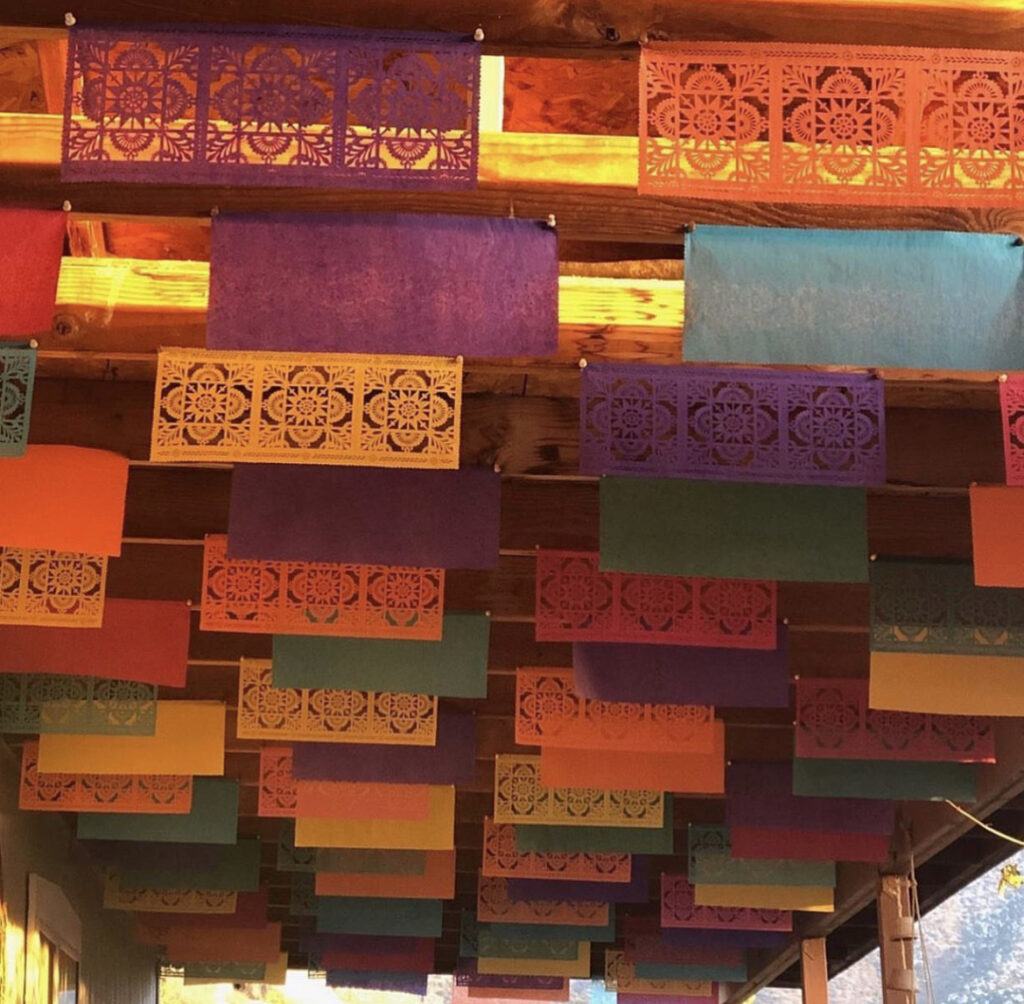
WHAT DOES PAPEL PICADO REPRESENT AND HOW IS IT USED FOR DAY OF THE DEAD?
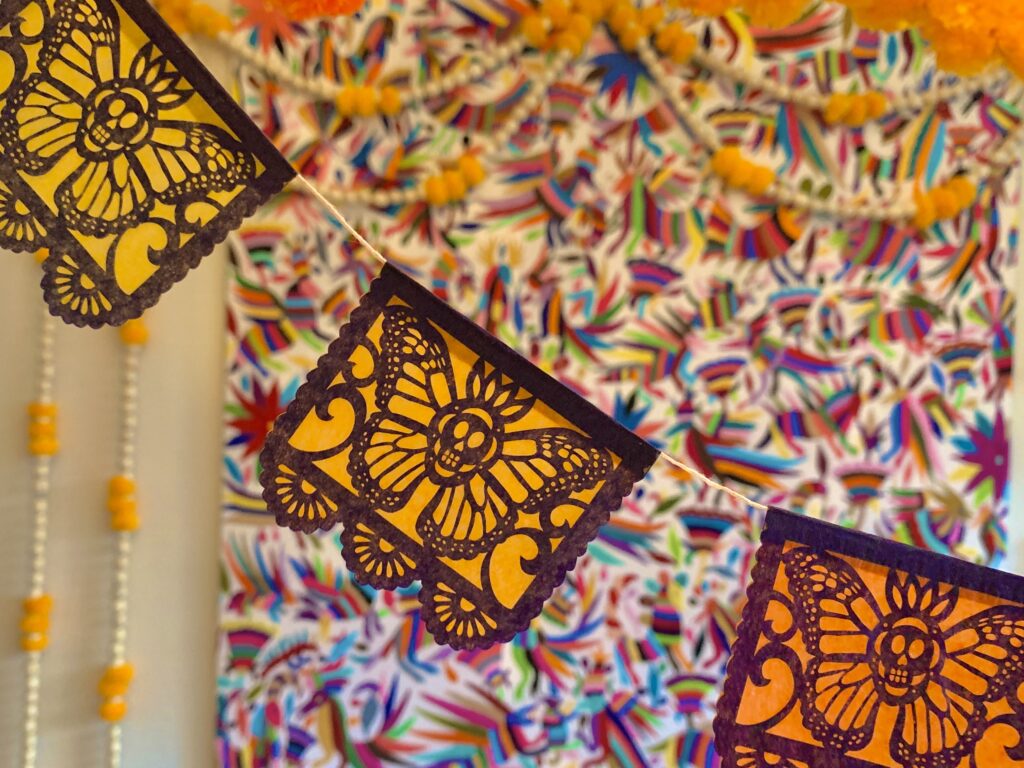
Colorful papel picado is often displayed on Día de los Muertos altars and represents the element of wind and the union between life and death. This delicate tissue paper also signifies the fragility of life as it is ephemeral. On Day of the Dead, because papel picado is so lightweight, when it moves, it lets families know that their loved ones have arrived.
SIGNIFICANCE OF DAY OF THE DEAD COLORS
- Black: Mictlán, the land of the dead, or death
- Purple: grief and mourning
- Pink: represents celebration
- White: purity, hope, and the innocence of the souls of babies
- Orange: sun
- Yellow: light and honors the elderly who have died
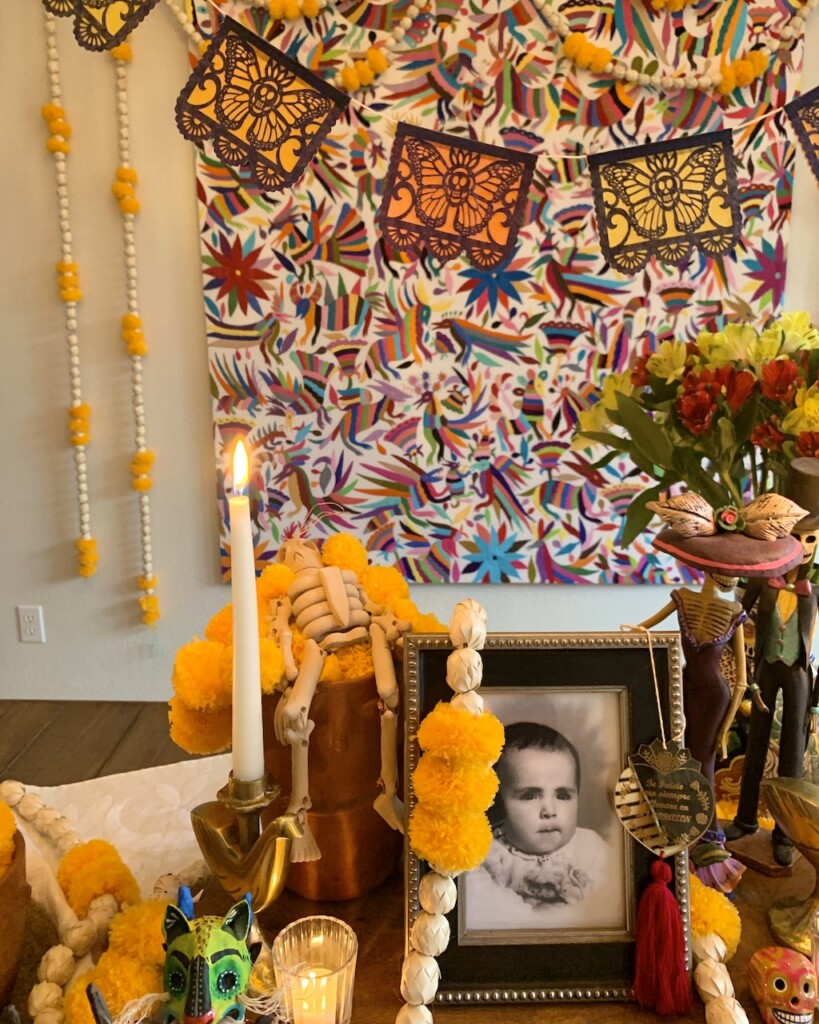
FREQUENTLY ASKED QUESTIONS
My favorite U.S. shop for handmade papel picado is Aye Mujer! You can also find it in many Mexican markets, craft stores, and online retailers including Lola’s Mercadito. You can also purchase handmade papel picado directly from artisans in Mexico or learn how to make it yourself.
LOOKING FOR MORE INSPIRATION?
Lola’s Mercadito: Minis and Day of the Dead
How to Host a Memorable Mexican Fiesta
¡Ay Mujer! Papel Picado for Life’s Ceremonies
Day of the Dead: Passing on Cultural Traditions from One Generation to the Next
Lola’s Mercadito: Mexican Fiesta Decor
Sugar Skulls and Spirits: Decoding the Symbolism of Altar Items
5 Fun Day of the Dead Crafts and Treats for Kids
7 Day of the Dead Traditions to Start as a Family This Year
3 Bilingual Books to Teach Children about Day of the Dead
10 Creative Crafts for Day of the Dead
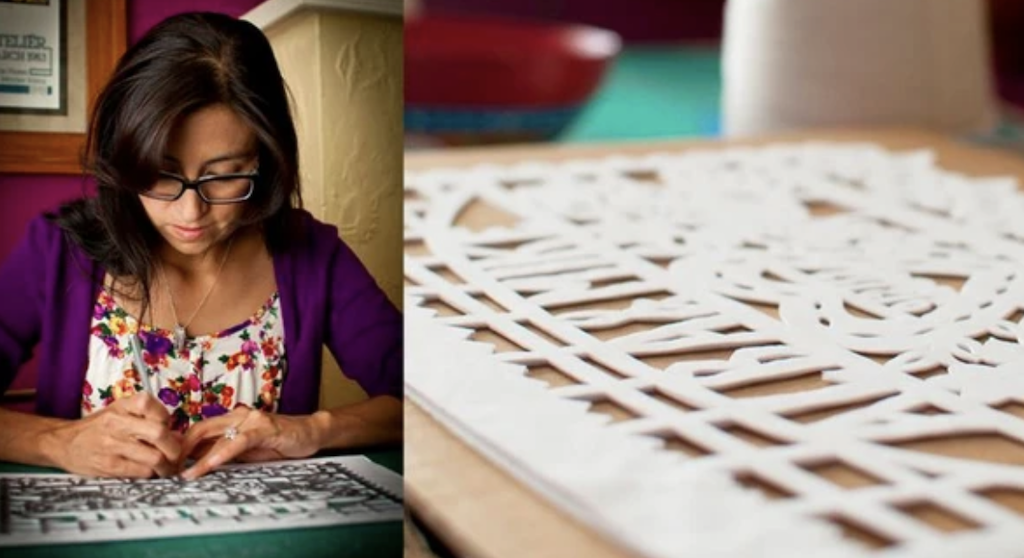
All images (except the two above this one) are from the talented papel picado artist, Yreina Flores, founder of Ay Mujer! She is based in Indio, CA and you can purchase her work online at aymujershop.com.

Lola Wiarco Dweck
Lola is a Mexican-American recipe developer, writer, and cooking instructor who loves sharing her culture with the world. Growing up in California and spending summers in Mexico, Lola celebrates her family’s Mexican recipes and vibrant culture through Lola’s Cocina.

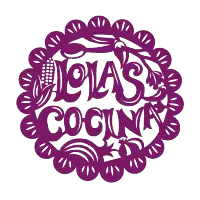
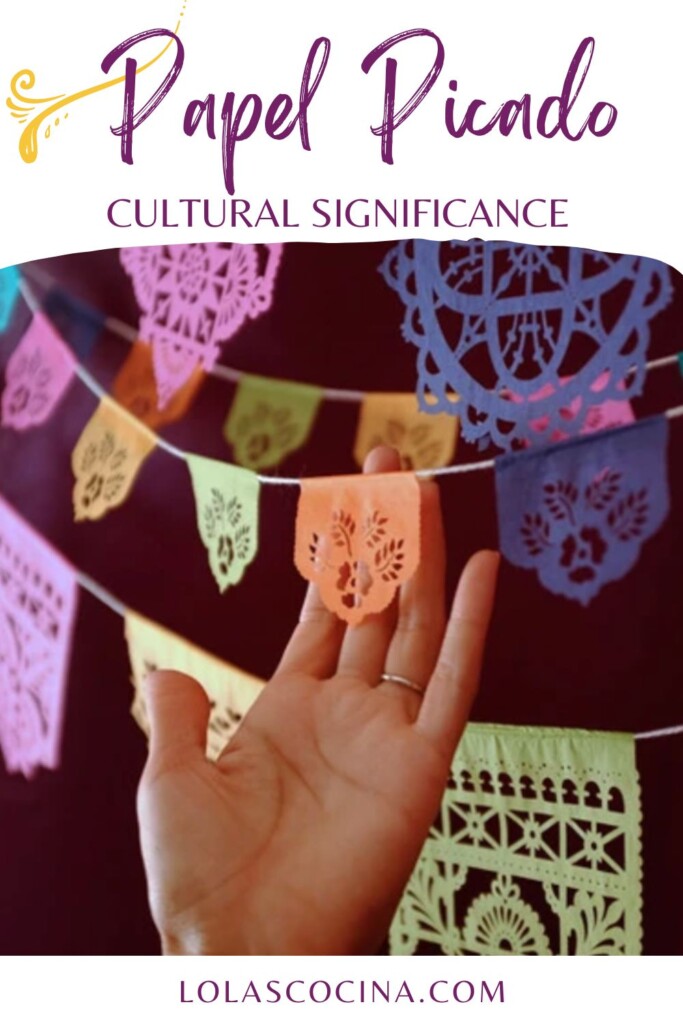
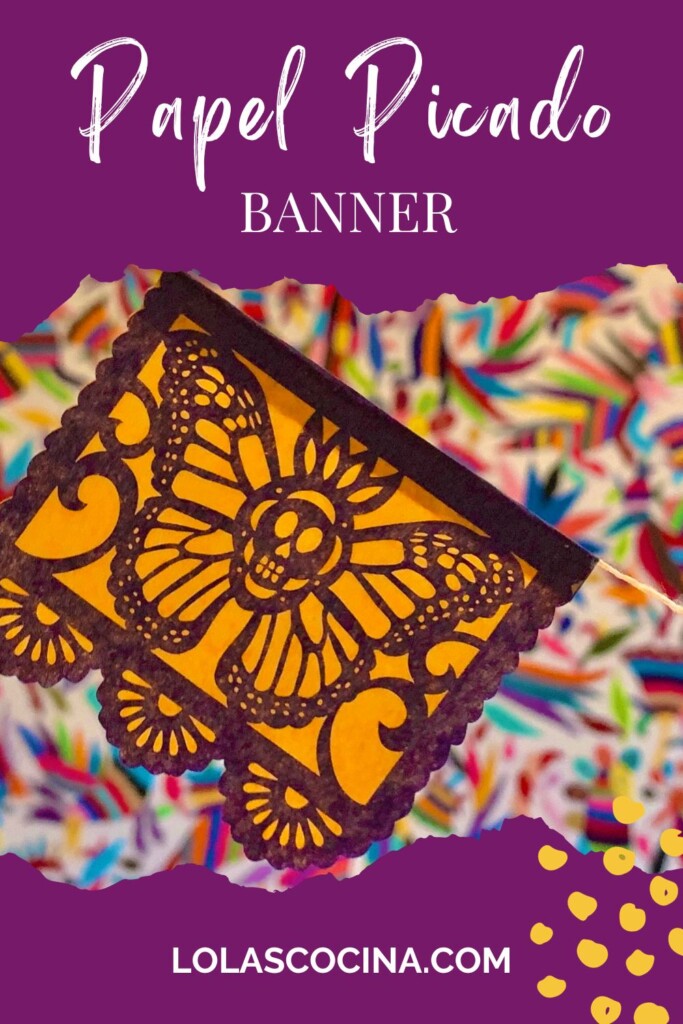
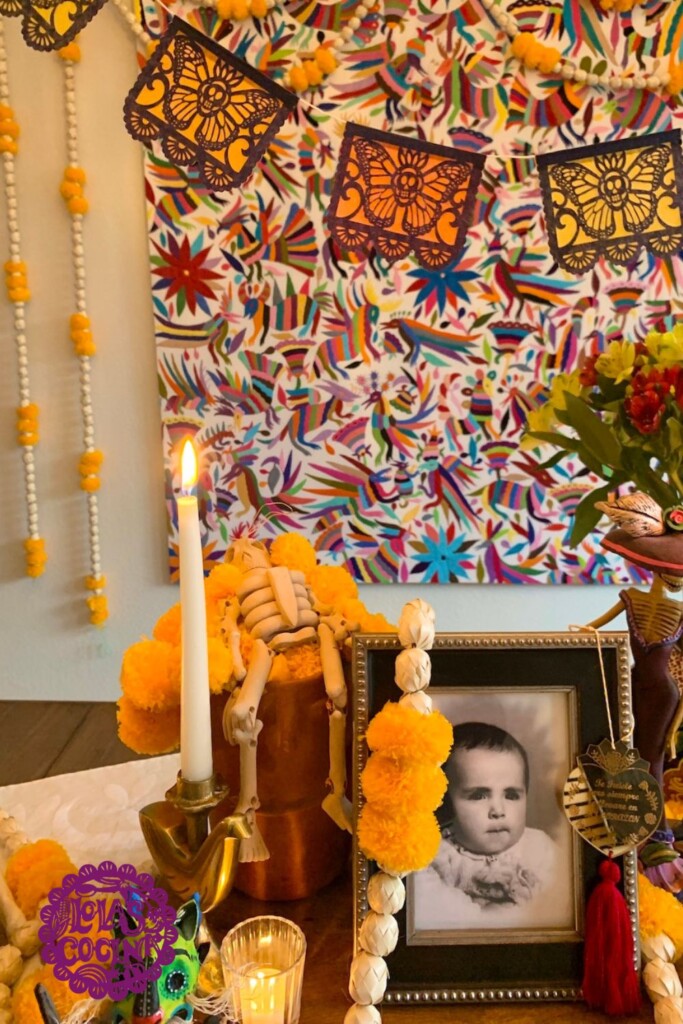
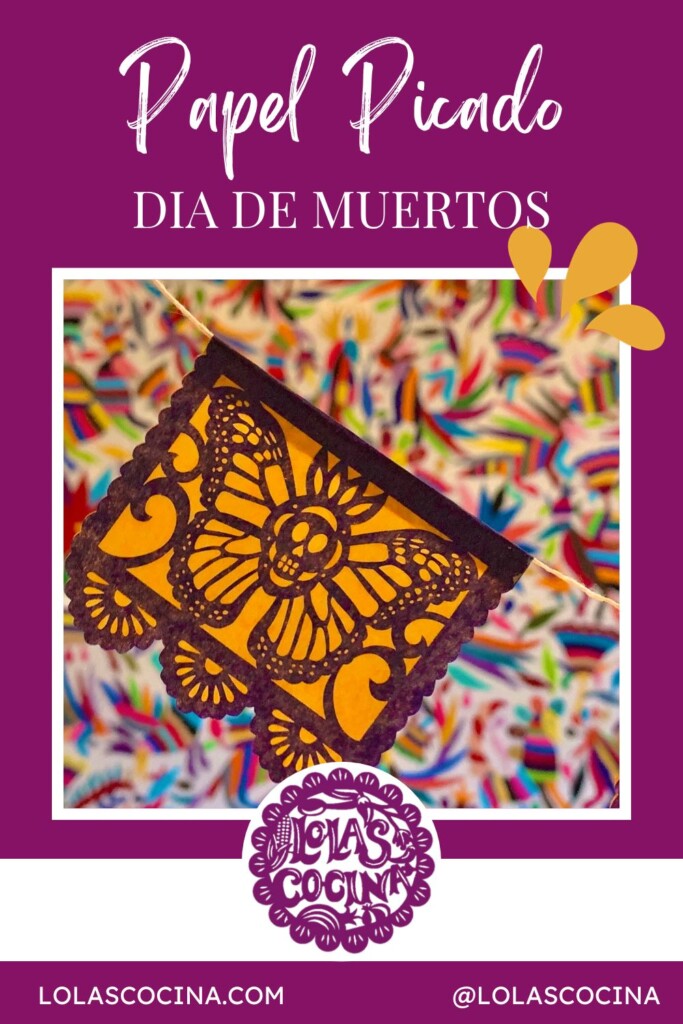
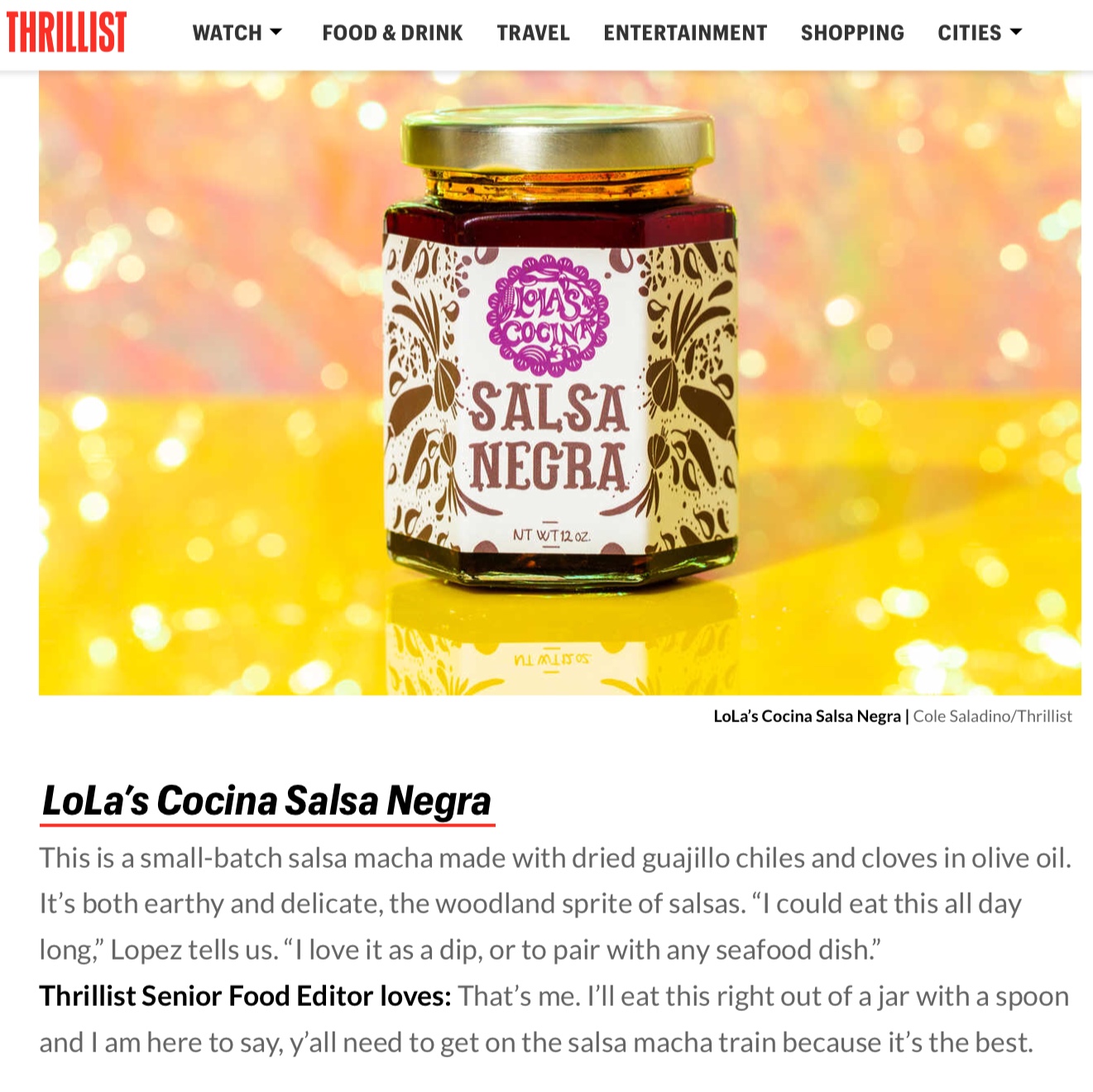
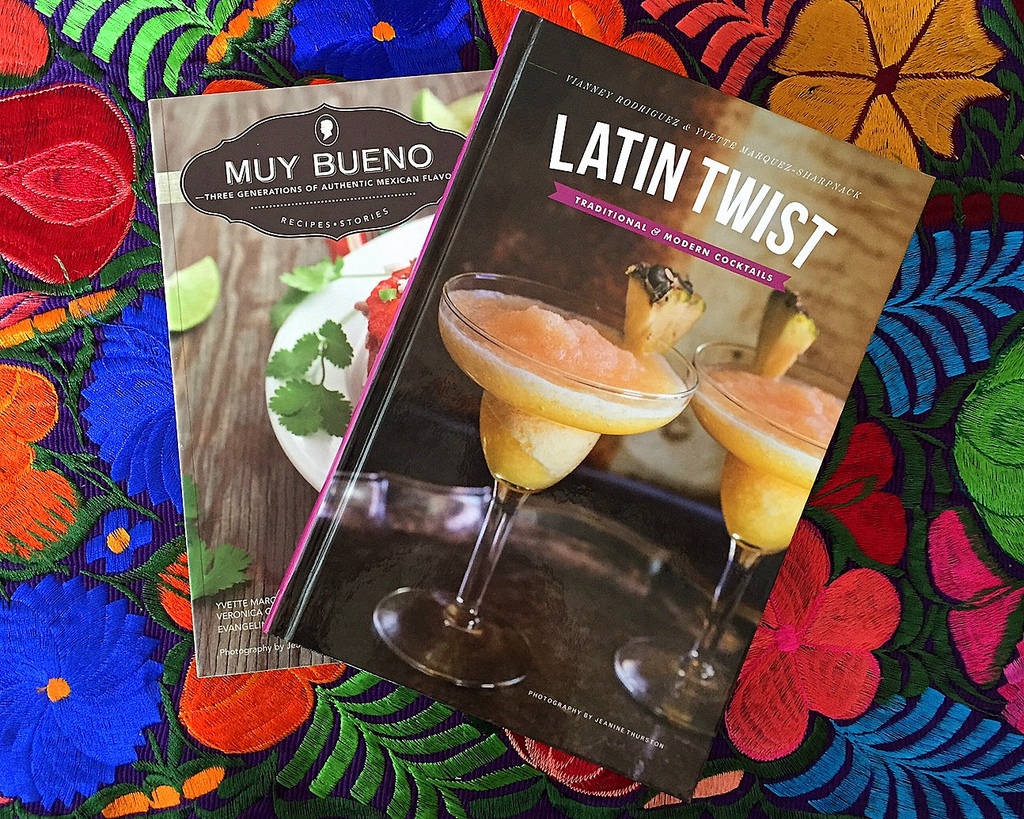
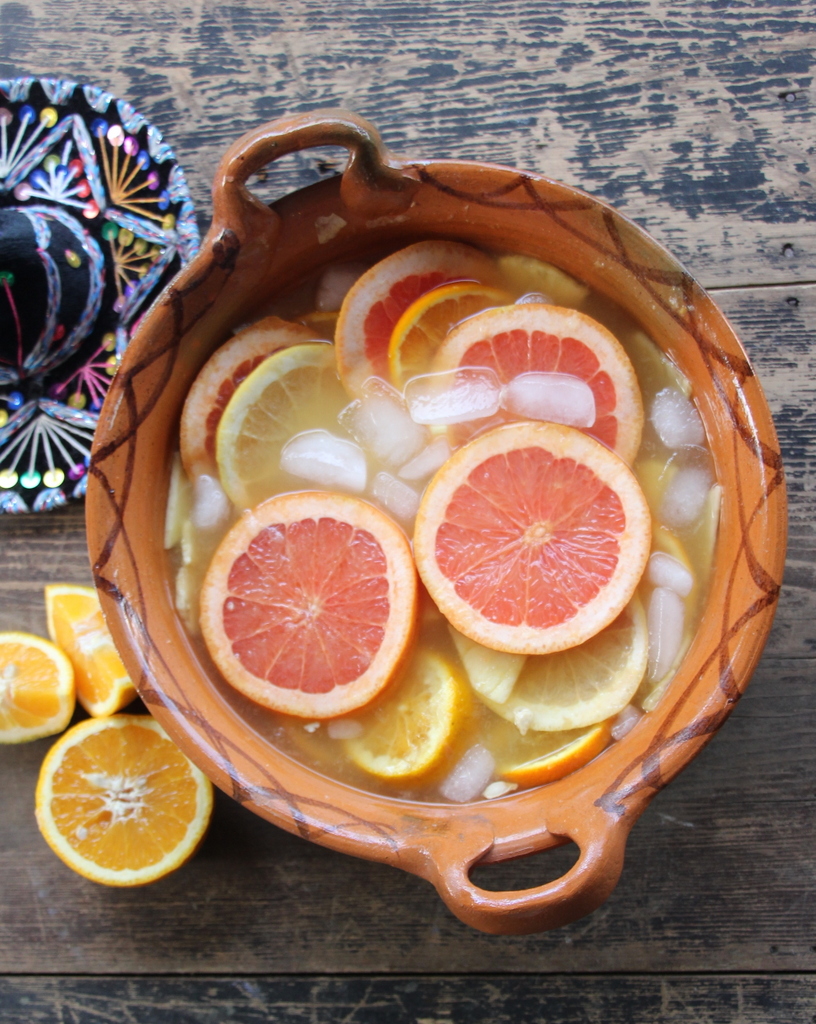
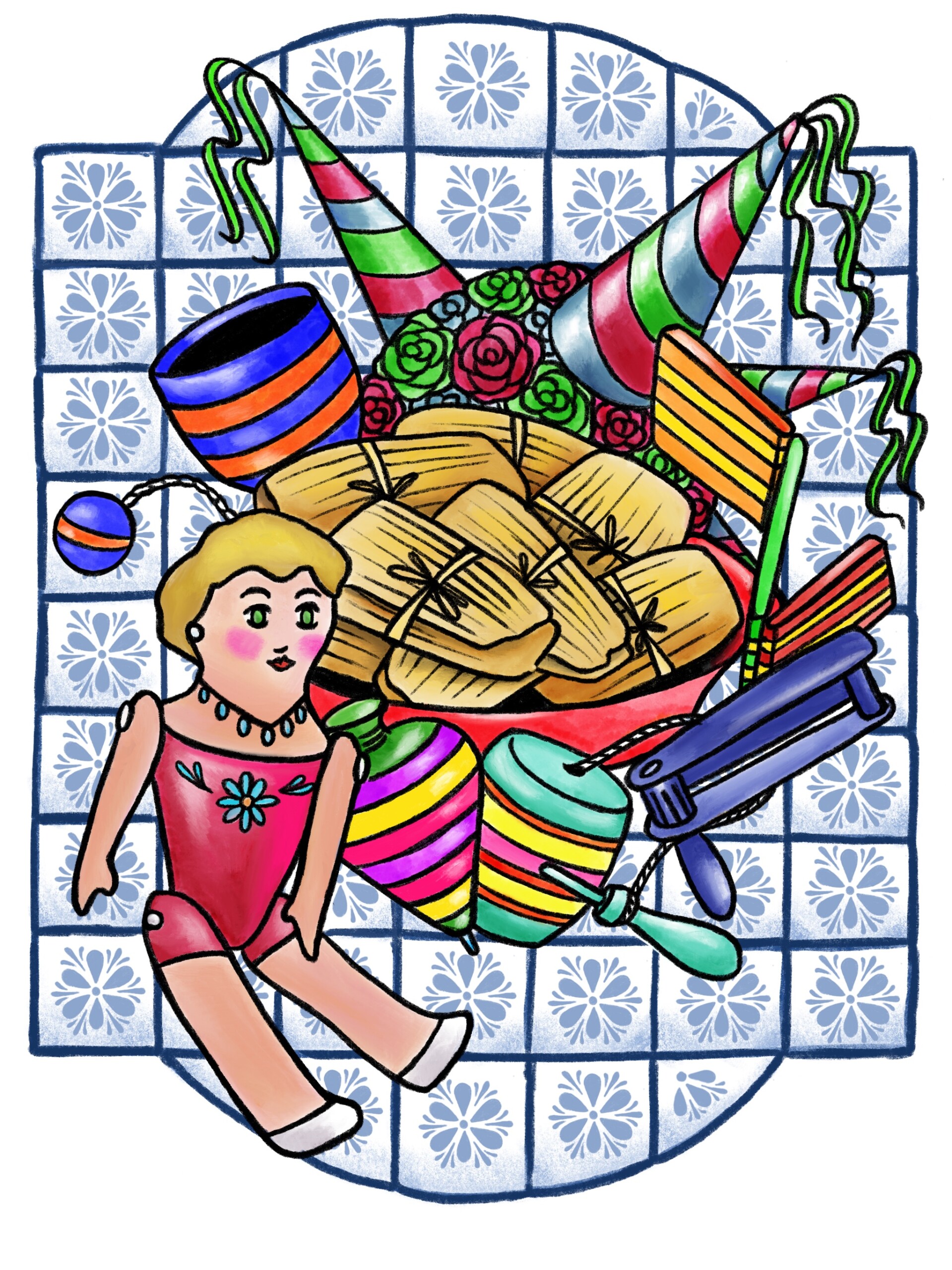
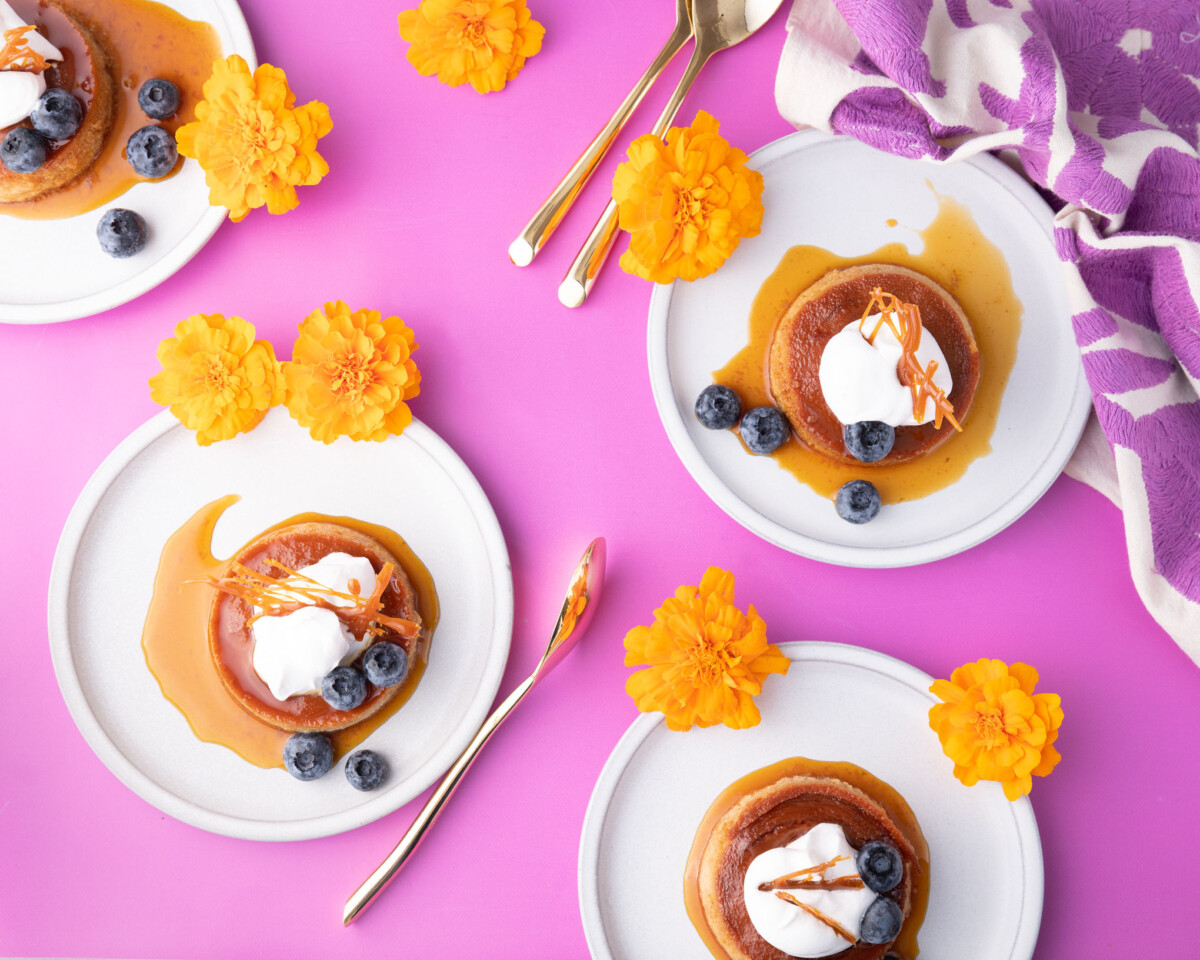
Great information about papel picado. Such a beautiful tradition and when used it just gives parties life. And I love the work from Aye Mujer. She customer made my birthday papel picado when I turned 50. She does some amazing work.
Thank you, Isa! It was a lot of fun researching the information for this post. Love that you had your papel picado custom made to celebrate your 50th!
Totally agree with you on your fine art comment. To me, it’s like an ephemeral lace.
What a beautiful way to put it – ephemeral lace”!